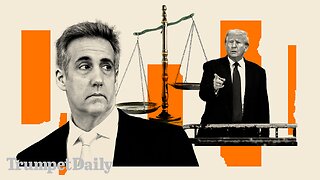Abraham Lincoln - 16th U.S. president, involved in the Civil War (1809 - 1865)
The 16th U.S. president, involved in the Civil War, was Abraham Lincoln. Here's an overview of his life and presidency:
Early Life:
Birth:
Abraham Lincoln was born on February 12, 1809, in a log cabin in Hardin County (now LaRue County), Kentucky.
Family:
His parents were Thomas Lincoln and Nancy Hanks Lincoln. Lincoln's early life was marked by poverty and a lack of formal education.
Move to Indiana:
The Lincoln family moved to Indiana in 1816, where young Abraham worked on the family farm.
Political Career:
Self-Education:
Despite limited formal education, Lincoln was a voracious reader and largely self-educated.
Lawyer and Illinois Legislature:
Lincoln became a lawyer in 1836 and entered the Illinois State Legislature in 1834.
U.S. House of Representatives:
He served one term in the U.S. House of Representatives from 1847 to 1849.
Lincoln and Slavery:
Opposition to the Extension of Slavery:
Lincoln opposed the extension of slavery into new territories, and his political career became increasingly defined by his opposition to the spread of slavery.
Lincoln-Douglas Debates:
In 1858, Lincoln engaged in a series of debates with Senator Stephen A. Douglas during the Illinois Senate race, gaining national attention.
Emancipation Proclamation:
Lincoln was elected as the 16th president of the United States in 1860. His election prompted several Southern states to secede, leading to the start of the Civil War in 1861.
The Emancipation Proclamation, issued by Lincoln in 1863, declared that all slaves in Confederate-held territory were to be set free. This move redefined the war as not only a struggle to preserve the Union but also a fight against slavery.
Civil War:
Commander-in-Chief:
Lincoln served as the Commander-in-Chief during the Civil War, working closely with his generals, including figures like Ulysses S. Grant.
Gettysburg Address:
In 1863, Lincoln delivered the Gettysburg Address, a brief but powerful speech that emphasized the principles of human equality and the preservation of the Union.
Reelection:
Lincoln was reelected in 1864, signaling continued support for his leadership during the war.
The End of the Civil War:
Appomattox Court House:
The Civil War came to an end in 1865, and Confederate General Robert E. Lee surrendered to Union General Ulysses S. Grant at Appomattox Court House.
Assassination:
On April 14, 1865, just days after the end of the war, Abraham Lincoln was assassinated by John Wilkes Booth while attending a play at Ford's Theatre in Washington, D.C. He died the following day, on April 15, 1865.
Legacy:
Abolition of Slavery:
Lincoln's leadership played a pivotal role in the abolition of slavery and the preservation of the Union.
Lincoln Memorial:
The Lincoln Memorial in Washington, D.C., stands as a tribute to his legacy, and his image is featured on the U.S. penny and the five-dollar bill.
Abraham Lincoln's presidency is often remembered as a critical period in American history, marked by the immense challenges of the Civil War and his steadfast commitment to the principles of freedom and equality. His legacy endures as one of the greatest leaders in U.S. history.
-
![[D2] Onslaught Grind w/ Some PvP before Final Shape](https://hugh.cdn.rumble.cloud/s/fw/s8/1/5/g/l/6/5gl6r.0kob-small-D2-Onslaught-Grind-w-Some-P.jpg) LIVE
LIVE
CHiLi XDD
4 hours ago[D2] Onslaught Grind w/ Some PvP before Final Shape
571 watching -
 2:45
2:45
Chicks in the Office
3 hours agoHolly Madison Talks Reconciliation with Kendra Wilkinson
10.2K18 -
 LIVE
LIVE
Di bear
5 hours agoFinal Season Mission, Pantheon | Destiny 2
841 watching -

SquallRush
7 hours agoAthenian Rhapsody!
18.7K5 -
 1:47:01
1:47:01
Real Coffee With Scott Adams
5 hours agoEpisode 2492 CWSA 06/01/24
25.8K34 -
 2:08:10
2:08:10
LFA TV
6 hours agoEP 47: Miles Guo Trial Special with Special Guests - Truth, Betrayal, and Fox Hunt | WHISTLE BLOWERS 6.01.24 12pm EST
19.4K7 -
 1:13:59
1:13:59
Tactical Advisor
4 hours agoVault Room Tour/Unboxing- Vault Room Live Stream
19.9K2 -
 1:11:28
1:11:28
The Squad
10 hours agoArsenal's Huge Summer🚨Olise to Man Utd DEAL✅ Osimhen to Arsenal or Chelsea☑️ UCL Final Preview
31.7K6 -
 56:23
56:23
Trumpet Daily
1 day ago $1.10 earnedCohen Is Free to Lie and Steal, but Trump Is Guilty of Something - Trumpet Daily | May 31, 2024
23.8K43 -
 8:26
8:26
MichaelBisping
22 hours agoBISPING CHOKES OUT STEVE-O! | JACKASS STAR PUT TO SLEEP BY UFC CHAMP! *FULL VIDEO*
45.8K12